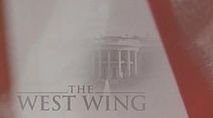
While studies into executive functioning and working memory have been around since the 70s and 80s, it was in the first decade of this century that the research really took off and by 2008 the National Centre for Learning Disabilities in the United States was highlighting EF issues in its publications.
"Executive Function" is a term used to describe a set of mental processes that helps us connect past experience with present action. We use executive function when we perform such activities as planning, organizing, strategizing and paying attention to and remembering details. People with executive function problems have difficulty with planning, organizing and managing time and space. They also show weakness with "working memory" (or "seeing in your mind's eye"), which is an important tool in guiding one's actions...Problems can be seen at any age but tend to be increasingly apparent as children move through the early elementary grades; the demands of completing schoolwork independently can often trigger signs that there are difficulties in this area.
Educators are now starting to catch up and recognize the warning signs that executive function might be an issue for individual students. They see such indicators as: time management, especially the ability to predict how much time a particular task might take; the inability to tell a story or recount events in an organized, sequential manner; retrieving information from their memory; or, retaining information while doing something with it at the same time. Students with EF challenges appear scattered or distracted or anxious and are often incapable of getting started on an assigned task.
At KGMS/Maplewood we have designated the first 10-15 minutes of each morning as our Executive Functioning block. Teachers and students start the academic day by reviewing a common, visual schedule or outline of the day ahead. This is often posted with picture cues to reinforce the words (a basketball for PE; a calculator for math; etc.) and is affixed somewhere at the front of the room where it will be visible all day. A schedule projected on the SmartBoard or written and then later erased on a white board has little value. To be effective it has to be available for constant viewing and reinforcement. With some students, a mini print version is taped to their desks for handy reference at any time. Other on-going reinforcements include: providing both verbal and visual instructions for each task; giving "early warning" signals when transitions are approaching or plans change; or projecting countdown timers on the Board to help students to pace themselves. Our teachers are experts at chunking assignments into manageable segments; using agendas or online software for managing time and tasks; and being very clear on expectations and the duration of every activity.
In addition, for many of our students, both at home and at school, an organized, clutter-free workspace is essential - eliminating distractions and ensuring that all necessary materials are close at hand. Getting organized and set up for a successful day is a key component of our EF block.
Often when educators think about executive function, this is where they stop. They focus on organizational skill development such as time management, developing organizational systems or planning and prioritizing. While this works for many students, there are clear barriers that prevent some children from easily mastering these skills. For them, this traditional approach does not work. A key EF challenge can be a product of working memory, which is the ability to hold information in memory while performing complex tasks. It incorporates the ability to "draw on past learning or experience to apply to the situation at hand or to project it into the future".
You can think of working memory as the active part of your memory system. It’s like mental juggling, says H. Lee Swanson, PhD, distinguished professor of education with the Graduate School of Education at the University of California, Riverside. “As information comes in, you’re processing it at the same time as you store it,” he says. "A child uses this skill when doing math calculations or listening to a story, for example. She has to hold onto the numbers while working with them. Or, she needs to remember the sequence of events and also think of what the story is about" .
Other executive functioning skills include: response inhibition which is the ability to think before you act including the ability to resist the urge to say or do something before you take the time to evaluate what impact your behaviour might have on a given situation; emotional control, that is, the ability to manage emotions, controlling and directing your behaviour in order to achieve goals and complete tasks; and, sustained attention which is the capacity to maintain attention to a situation or task in spite of distractibility, fatigue or boredom. Working on these skills with students is obviously a key part of our Social Emotional Learning programme (SEL).
Needless to say, we have spent a lot of time as a school exploring these ideas and implementing strategies for our students. But maybe we just should have been watching old episodes of The West Wing instead!


 RSS Feed
RSS Feed
